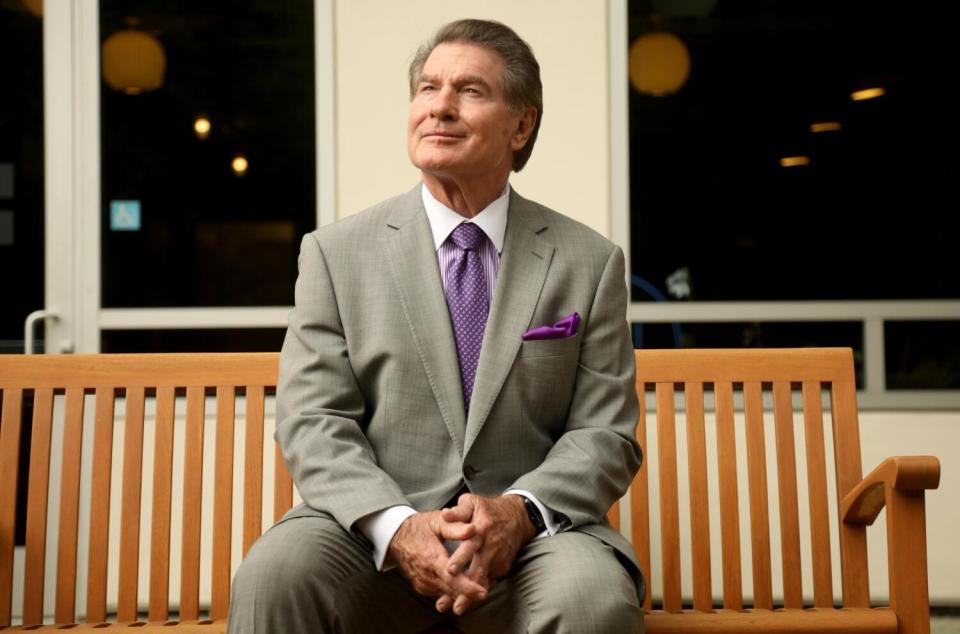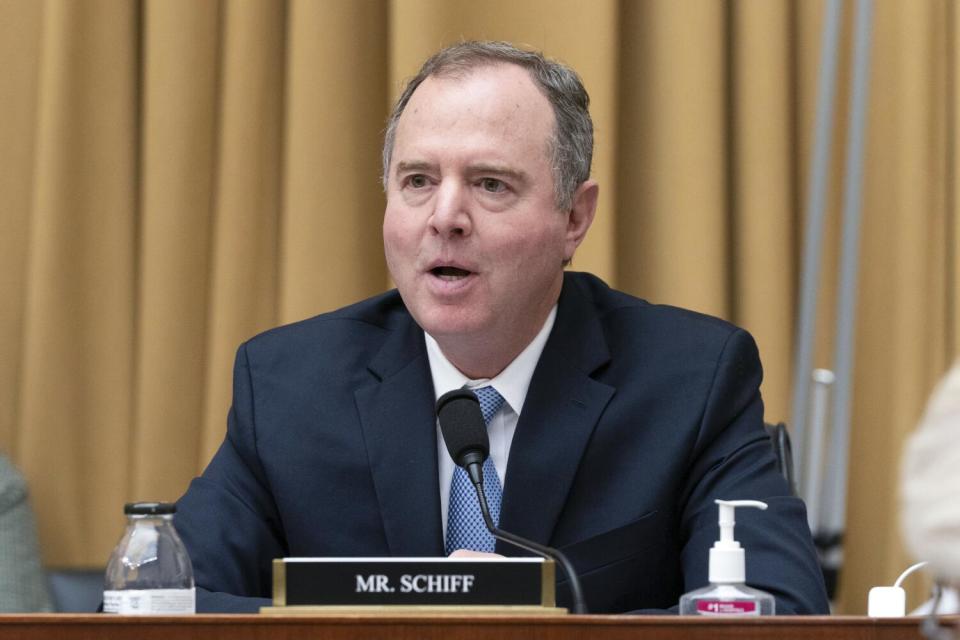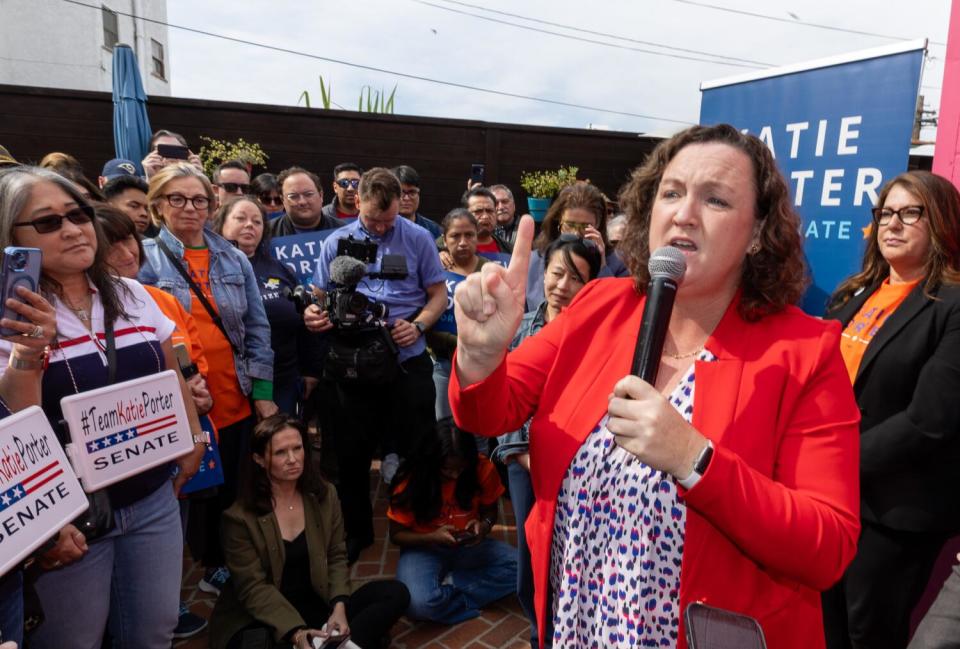Your guide to the California Senate candidates' views of housing and homelessness
- Oops!Something went wrong.Please try again later.
- Oops!Something went wrong.Please try again later.
- Oops!Something went wrong.Please try again later.
- Oops!Something went wrong.Please try again later.
- Oops!Something went wrong.Please try again later.
No issues excite, interest or anger California voters more than the housing crisis and homelessness.
Because seeing tents on street corners is how most Californians process the crisis, it's often viewed the domain of local politicians. The reality is that much of the funding to address homelessness or housing insecurity flows from the federal government. About 28% of the country's homeless population or about 180,000 people live in California.
Because of the Washington's influence, electing a senator with an expertise on the issue and proposals to alleviate the crises will be pivotal to California's future.
While homelessness and housing have not been the dominate issues in the race to succeed the late Sen. Dianne Feinstein, the candidates have made some of their views known. Democratic Reps. Katie Porter of Irvine, Adam Schiff of Burbank and Barbara Lee of Oakland along with Republican Steve Garvey have all offered insights that give some clues to what shapes their world view on those issues.
Steve Garvey

The former professional baseball player campaigned this winter by appearing at a homeless shelter in San Diego and taking a tour of Skid Row in Los Angeles. The point of the trip, he told reporters, was to get up to speed on the issue.
“Once we get through the primary, I’ll start a deeper dive into the [issues],” Garvey, who played for the Dodgers and San Diego Padres, said outside the San Diego homeless shelter.
“I haven’t been at this very long, so you got to give me a little bit of leeway here."
Read more: Your guide to the California U.S. Senate election: The race to succeed Sen. Dianne Feinstein
Since then he's offered few specifics as to how he'd tackle these twin crises if elected to the Senate. During a televised debate in February, Garvey railed about regulations stifling the ability to build more housing in the state, but he couldn't name a regulation he'd like to cut. He blames Democrats for failing to address the issues even after spending billions of dollars. He's called for an audit on how money has been spent by government but has said little on how he'd do things differently.
When talking about homelessness, Garvey focuses on the drug and mental health crisis that is playing out on the state's streets. "We need to dig deep and provide comprehensive care that includes mental health, addiction treatment, and affordable housing," his campaign site states.
Homeless people "need to be taken off the streets. They need to be cared for. It's the drugs and the mental illness that's the truest disaster," he said at a recent debate.
Adam Schiff

The Burbank representative has backed legislation that has expanded federal funding for housing. He, along with Lee and Porter, voted for the American Rescue Plan along with the earlier COVID-19 stimulus package that included billions of dollars in rental subsidies for people on the verge of eviction. He also supported the Ending Homelessness Act of 2023, legislation sponsored by Rep. Maxine Waters (D-Los Angeles), a roughly $10 billion proposal to reducing homelessness though existing government programs.
In the past, Schiff has used a federal grant funding mechanism known as earmarks — or money targeted at specific projects — to get money for nonprofits in his district. In the 2022, his office got about $11 million in funding for projects that touched homelessness, housing and food insecurity.
Read more: Long before he took on Trump, Adam Schiff's pursuit of tough justice defined his career
On the campaign trail, Schiff has talked quite a bit about homelessness and economic insecurity. Both Schiff and Porter have released housing plans, and each has talked about the need to expand the Low-Income Housing Tax Credit, which is the signature program for financing affordable housing construction in the United States. The program offers tax breaks for investors who fund the construction of affordable housing.
Separately, just a quarter of the people who qualify receive the federal government's main rental subsidy program, known as Section 8 housing vouchers. Schiff and others have called for this program to be an entitlement—meaning everyone who meets the income requirements receives the subsidy.
Schiff wants to increase federal spending on homelessness by at least $100 billion. Currently the federal govenremnt spends about $10 billion on homelessness assistance programs through the Department of Housing and Urban Development. (This doesn't include rental subsides through the Section 8 program). He also wants to restrict private equity investors from buying up large tracts of housing so as not to crowd out first-time purchasers of homes and provide down payment assistance to low-income Americans when buying homes.
"Beyond the kind of immediate task of getting people off the street to make things more affordable, I think we need to change the tax incentives that provide much stronger incentives to develop housing," Schiff said. "We have to find a way to constrain rising rents even in places where there's lots of vacancy."
Katie Porter

Porter talks about homelessness and housing in starkly personal terms, describing how her own children worry if they'll be able to afford to live in California because of the cost of housing. She's also said the current situation is a failure of decades of bad policy out of Washington.
"Housing was barely an issue in the last Democratic presidential election and it hasn't been enough of an issue yet in this race in my opinion," she told The Times after a debate earlier this month.
Porter's housing plan also calls for fully funding the Section 8 voucher program. The federal budget includes about $30 billion for these rental vouchers, which help around 2 million Americans pay rent. To fully fund it, experts estimate that the federal government would need to spend about $100 billion a year on the program .
Read more: How Katie Porter harnesses her blunt style and single-mom experience in her Senate campaign
If elected, Porter said she would "push for improved tax credits and government loan guarantees, which will spur Wall Street to provide financing for increasing home ownership opportunities for our workforce."
Porter also expressed skepticism over Wall Street's incursion into the housing market, saying her plan that would disincentivize investment firms from viewing real estate speculation as a financial tool to grow their own profits.
She's also pushing for more investment by the federal government in the creation of new housing and the creation of a package of subsidies that help first time home buyers along with tax credits to increase the construction of more housing.
Barbara Lee
Lee has talked openly about being homeless herself. It occurred in her mid-20s when she was single mother of two and had just left an abusive relationship. The experience shaped how she views the issue, she said.
Much of Lee's career in politics has focused on addressing poverty. In Congress, she and Vermont Sen. Bernie Sanders were early advocates for the funding of the National Affordable Housing Trust Fund — a program meant to restore and build low income rental housing. If elected, she says she would "invest more than $1 trillion in the National Affordable Housing Trust Fund to build millions of affordable units in both urban and rural areas, offer assistance for first-time home buyers, and provide rent relief for lower-income renters."
Read more: From working with Black Panthers to calling for cease-fire, Barbara Lee stands by her beliefs
Like Porter and Schiff, Lee wants to make the Section 8 program an entitlement so it's available to everyone who qualifies. She's pushed for a cap on yearly rental increases and legislation that would help renters afford "security deposits and other essential moving costs." Like the other Democrats, Lee supports Rep. Waters' Ending Homelessness Act of 2023.
"We have to make sure children have safe housing and we have to make sure the federal government invests in our unsheltered population," Lee said.
Related coverage
Read more: California’s streak of female senators may be ending — and women appear to be a reason
Read more: In final primary debate, Senate candidates spar over Israel, immigration and campaign donations
Read more: Steve Garvey touts 'family values' in his Senate bid. Some of his kids tell another story
How and where to vote
Read more California election guides
Read more: Your guide to Proposition 1: Newsom's overhaul of California's mental health system
Read more: Your guide to California's Congressional District 30 race: The battle for Schiff's seat
More election news
This story originally appeared in Los Angeles Times.

